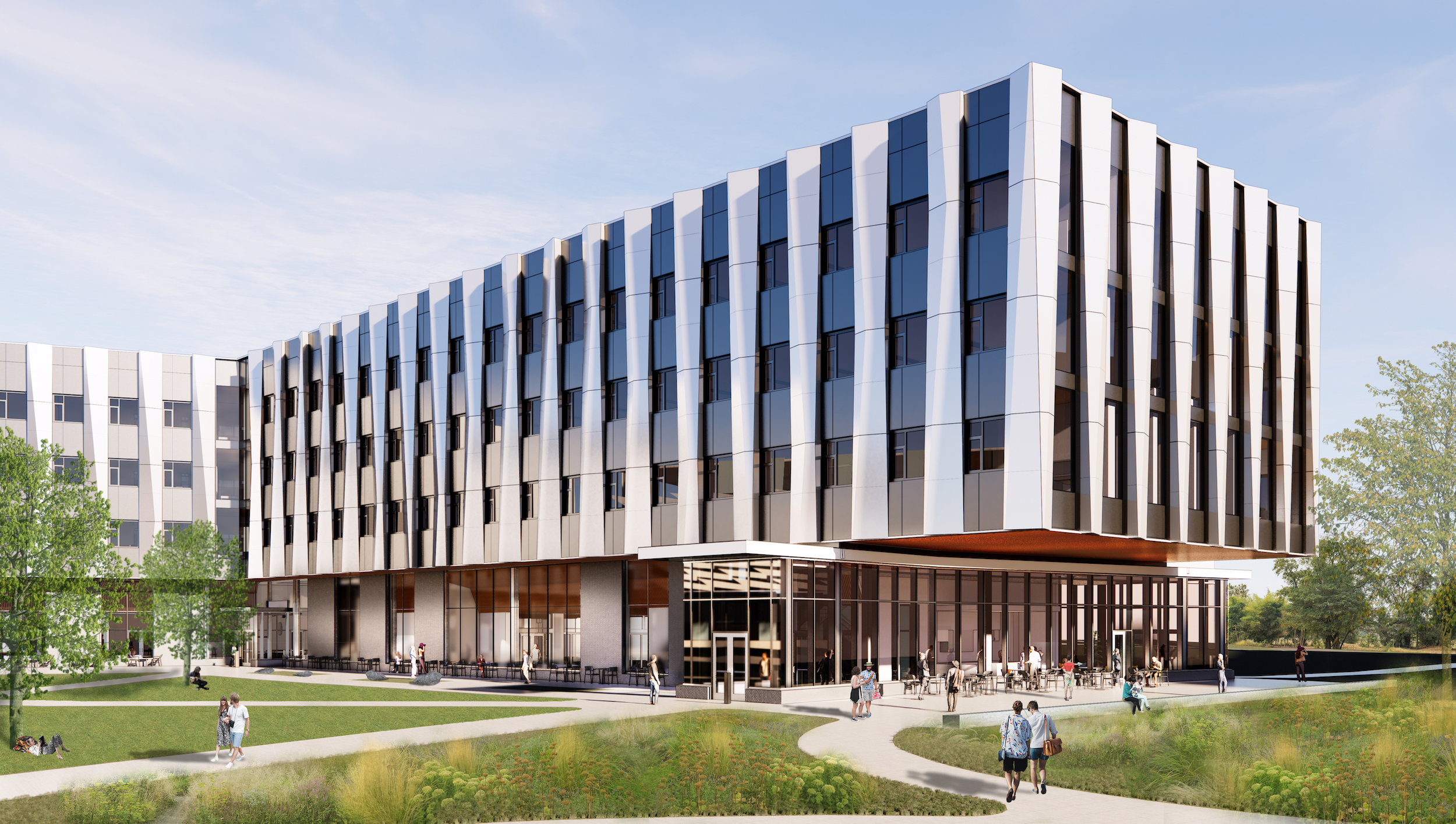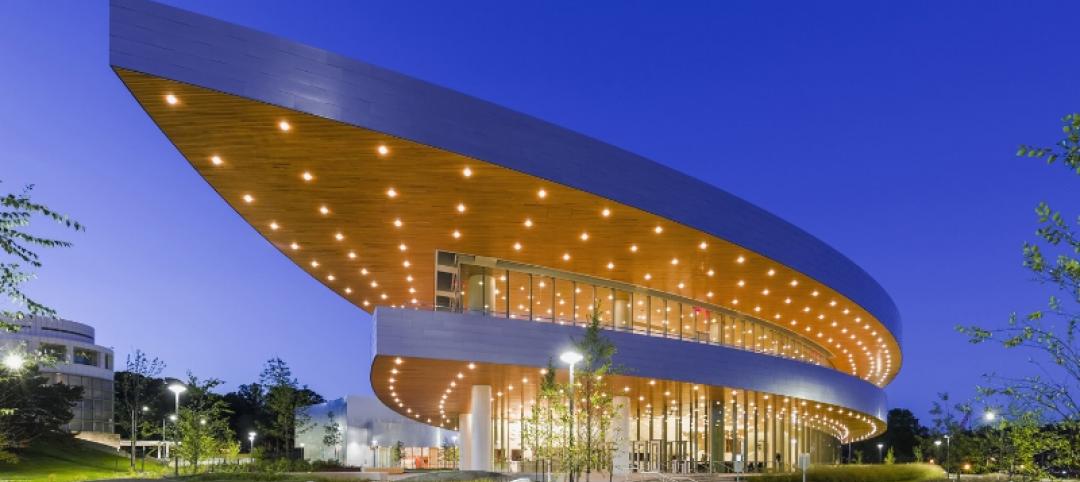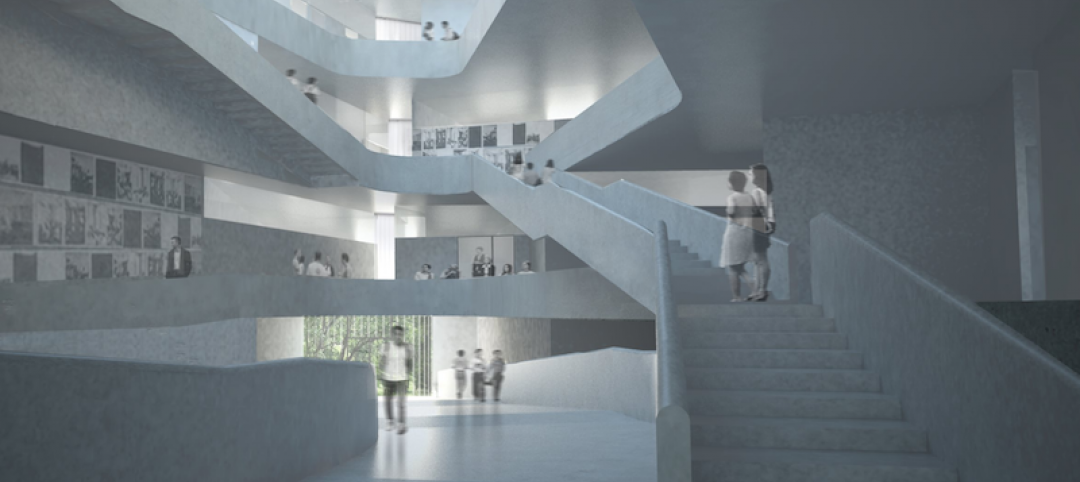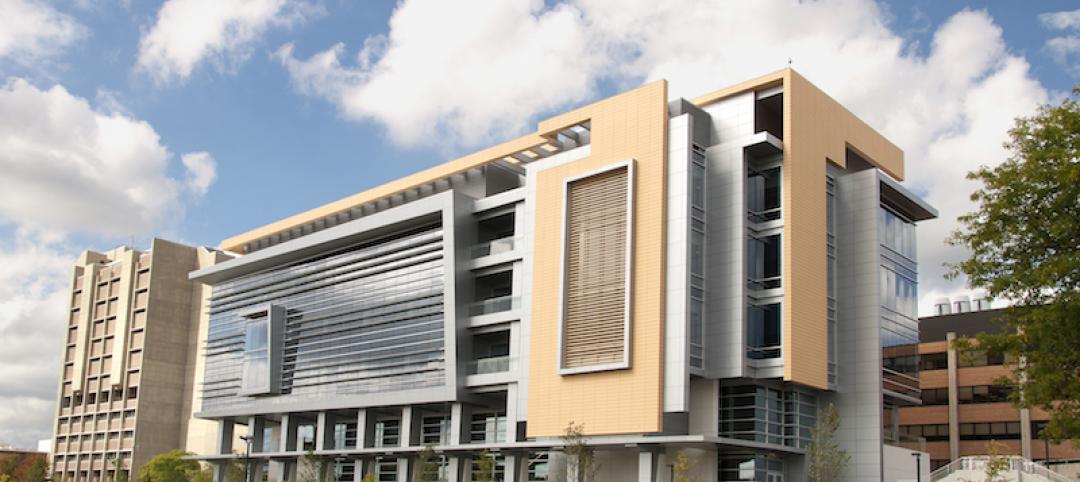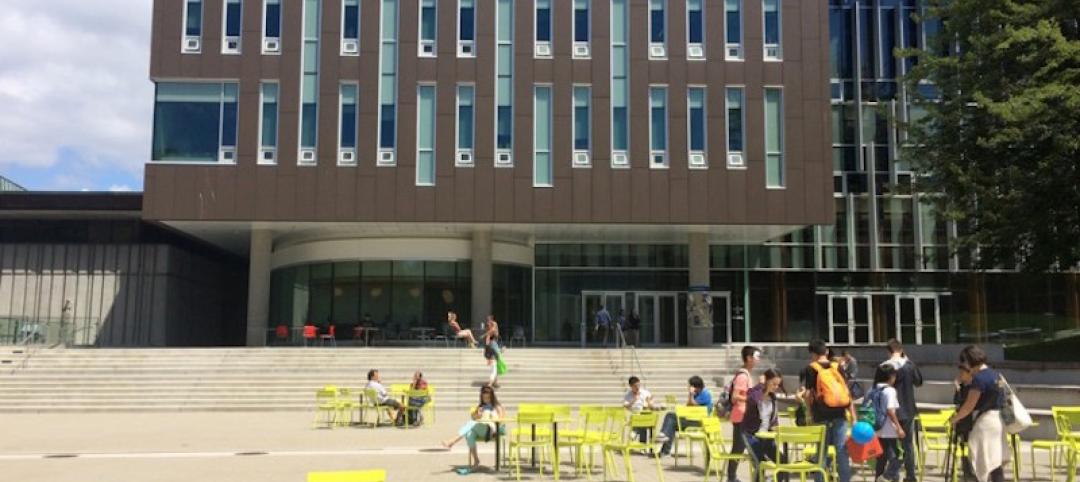Construction recently began on Cornell University’s new 135,000-sf building for the Cornell Ann S. Bowers College of Computing and Information Science (Cornell Bowers CIS). Designed by Boston-based Leers Weinzapfel Associates, the structure will bring together the departments of Computer Science, Information Science, and Statistics and Data Science for the first time in one complex.
The new four-story structure in Ithaca, N.Y., will define a highly identifiable Bowers CIS precinct of continuous building and open space, creating a magnet attracting students from multiple disciplines across the entire university, according to a news release from Leers Weinzapfel Associates. The building’s three research floors connected to Gates Hall will float above a lively and active ground floor framing an outdoor space for daily use, small gatherings, and large ceremonies.
The two wings of the building will contain academic research offices and computational labs augmented by a suite of collaborative spaces on the three upper floors. At the ground level, a student “ramble” along the courtyard edge will provide a place for individual and small group study, while a café, commons, large interactive classroom, a series of large builder labs, and a maker space will provide areas for students to study and work on projects together.
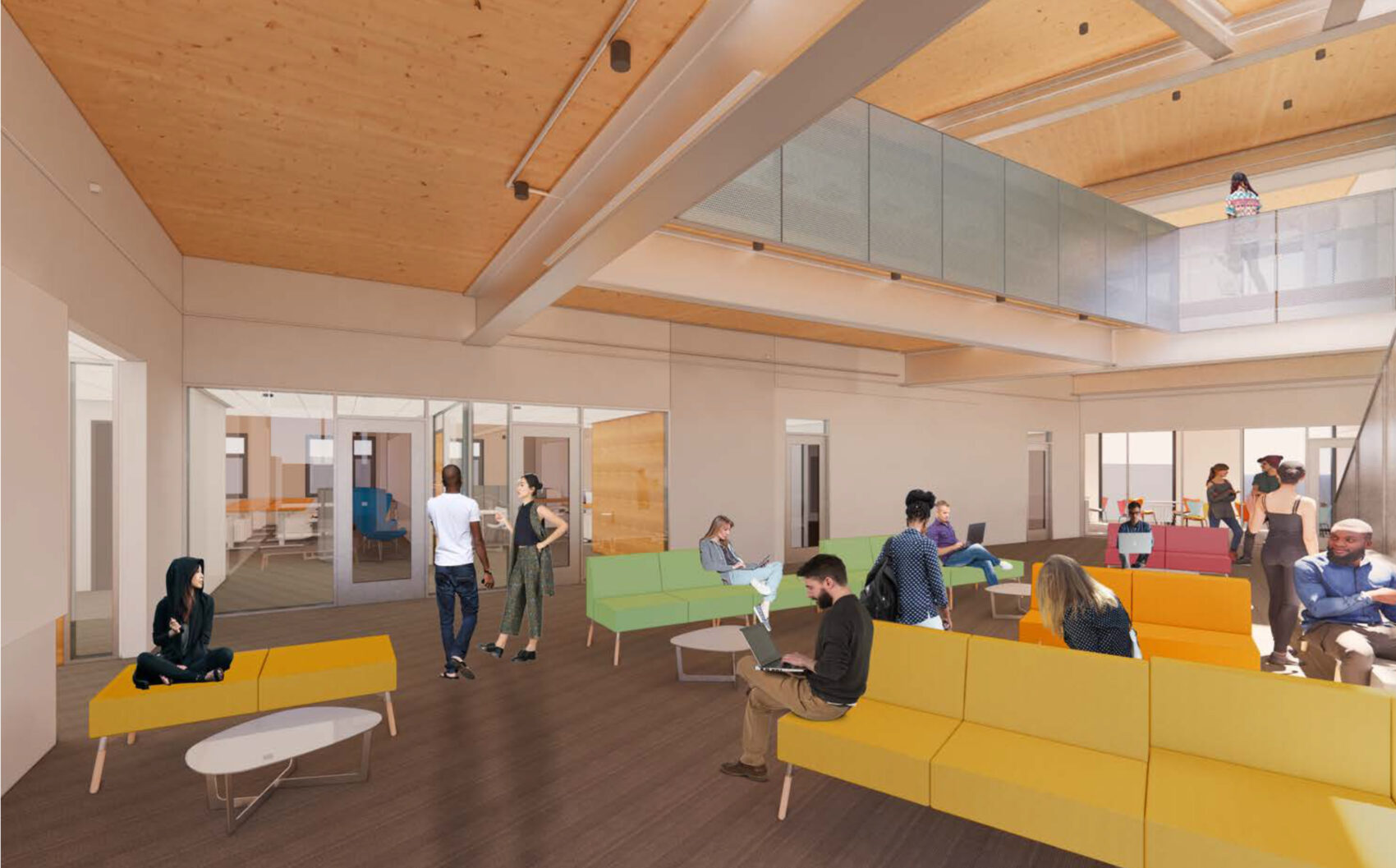
A ribbon of faceted sculptural metal fins will wrap the three-story research floors, creating a distinct identity for the building while maintaining a sustainable limited window area.
“Our goal is to create a place for both the dynamic exchange of ideas and for quiet focused research,” said Andrea Leers, principal-in-charge, Leers Weinzapfel Associates. Since creating the Faculty of Computing and Information Science in 1999, Cornell has experienced continued student growth in the computing and information science fields.
Sustained dynamic growth and uniquely collaborative research fuels the college to develop state-of-the-art computing and information technologies, and to study and understand the societal and human impact of these technologies.
The project will incorporate sustainable development strategies to comply with the Ithaca Energy Code Supplement and NYStretch Energy Code.
On the team:
Owner and/or developer: Cornell University
Design architect: Leers Weinzapfel Associates
Architect of record: Leers Weinzapfel Associates
MEP engineer: BVH Integrated Services, A Salas O’Brien Company
Structural engineer: Thornton Tomasetti
General contractor/construction manager: LeChase
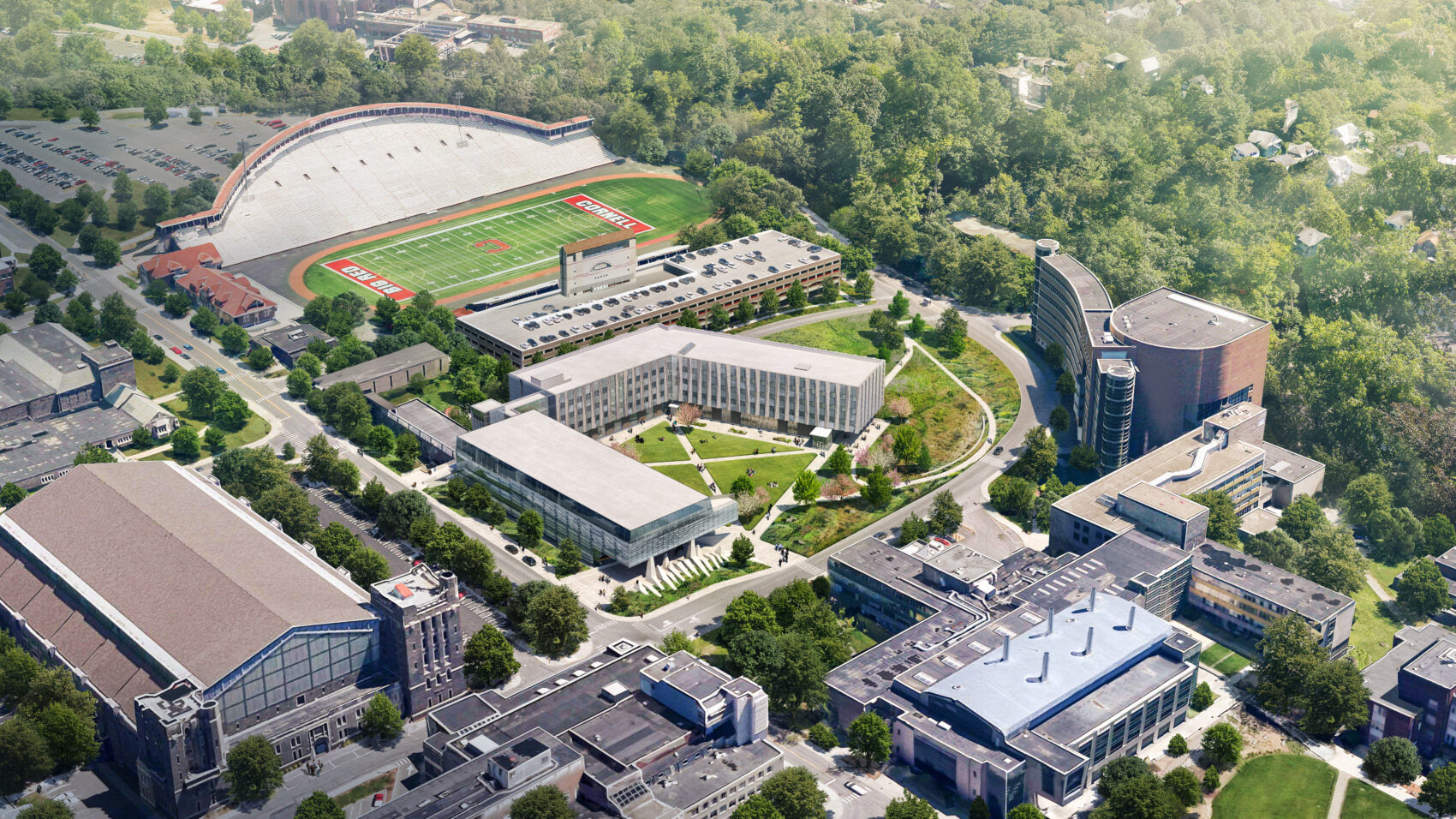
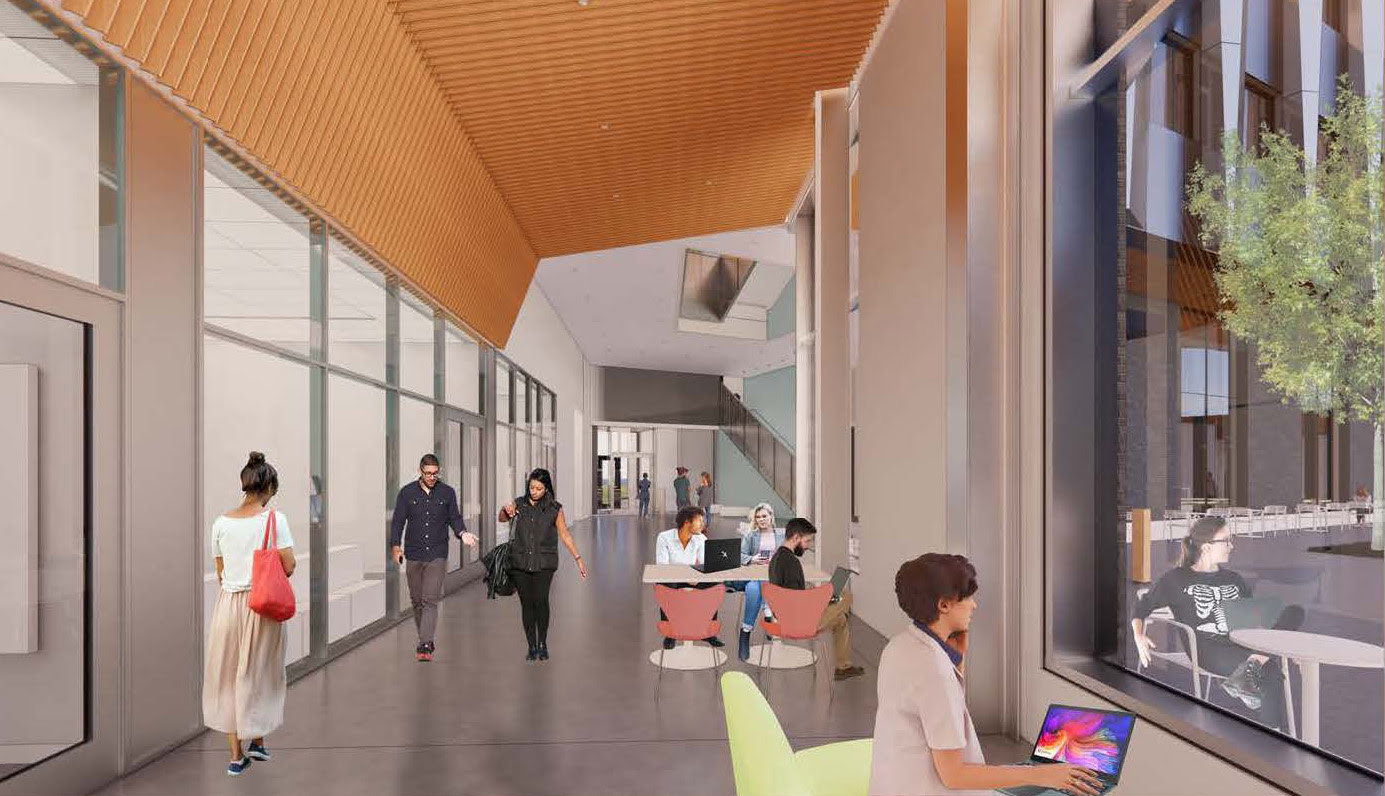
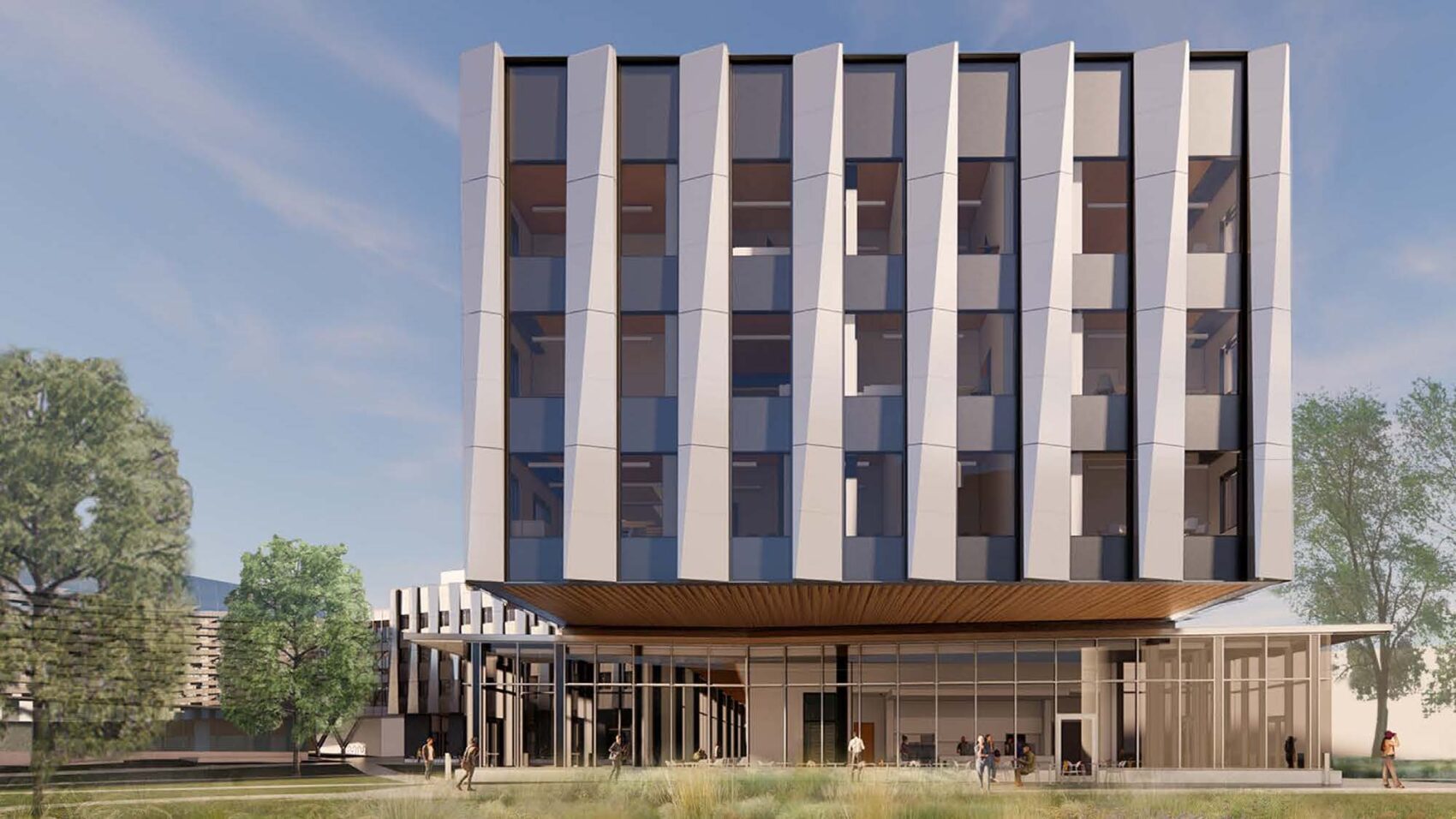
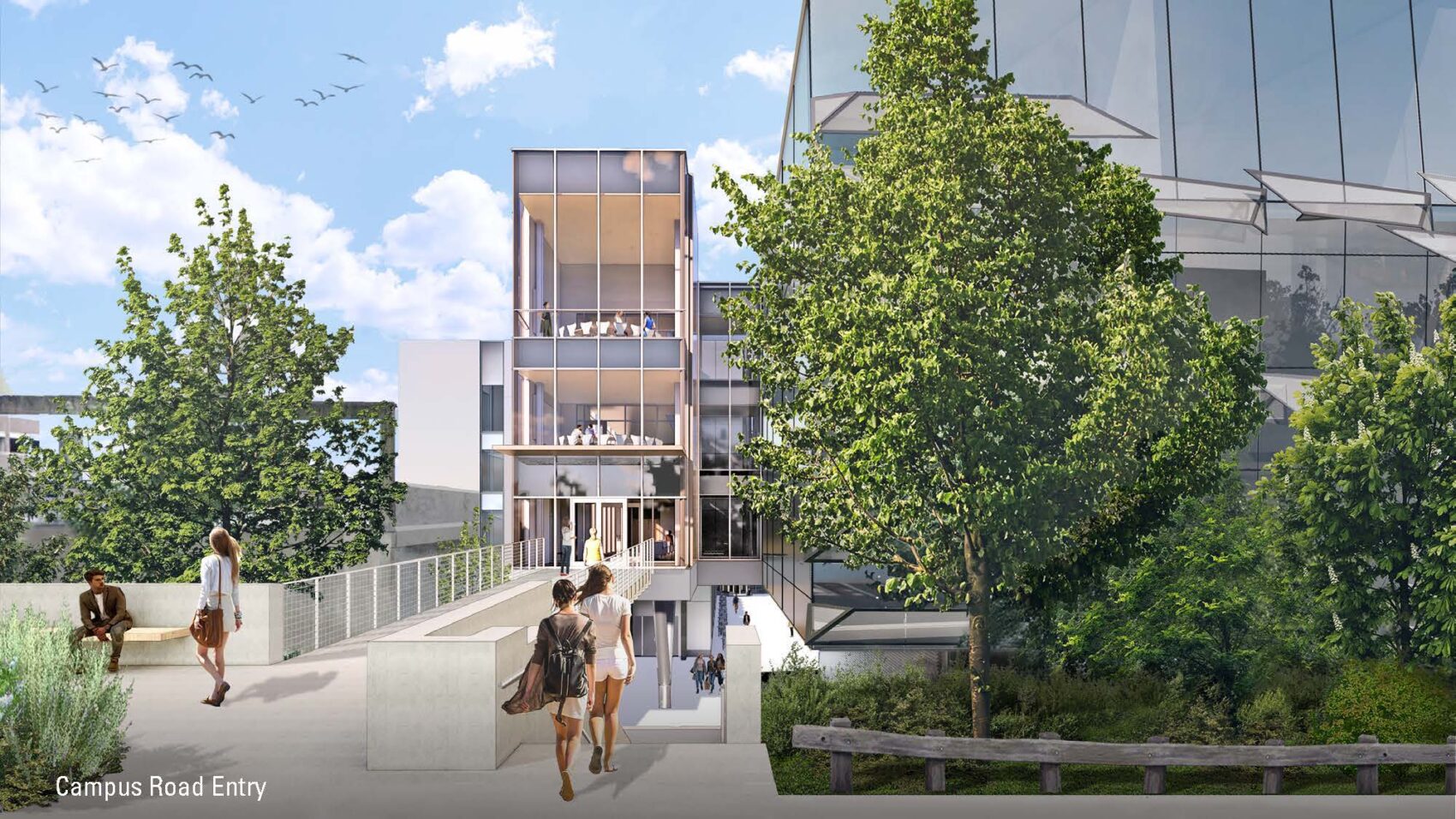
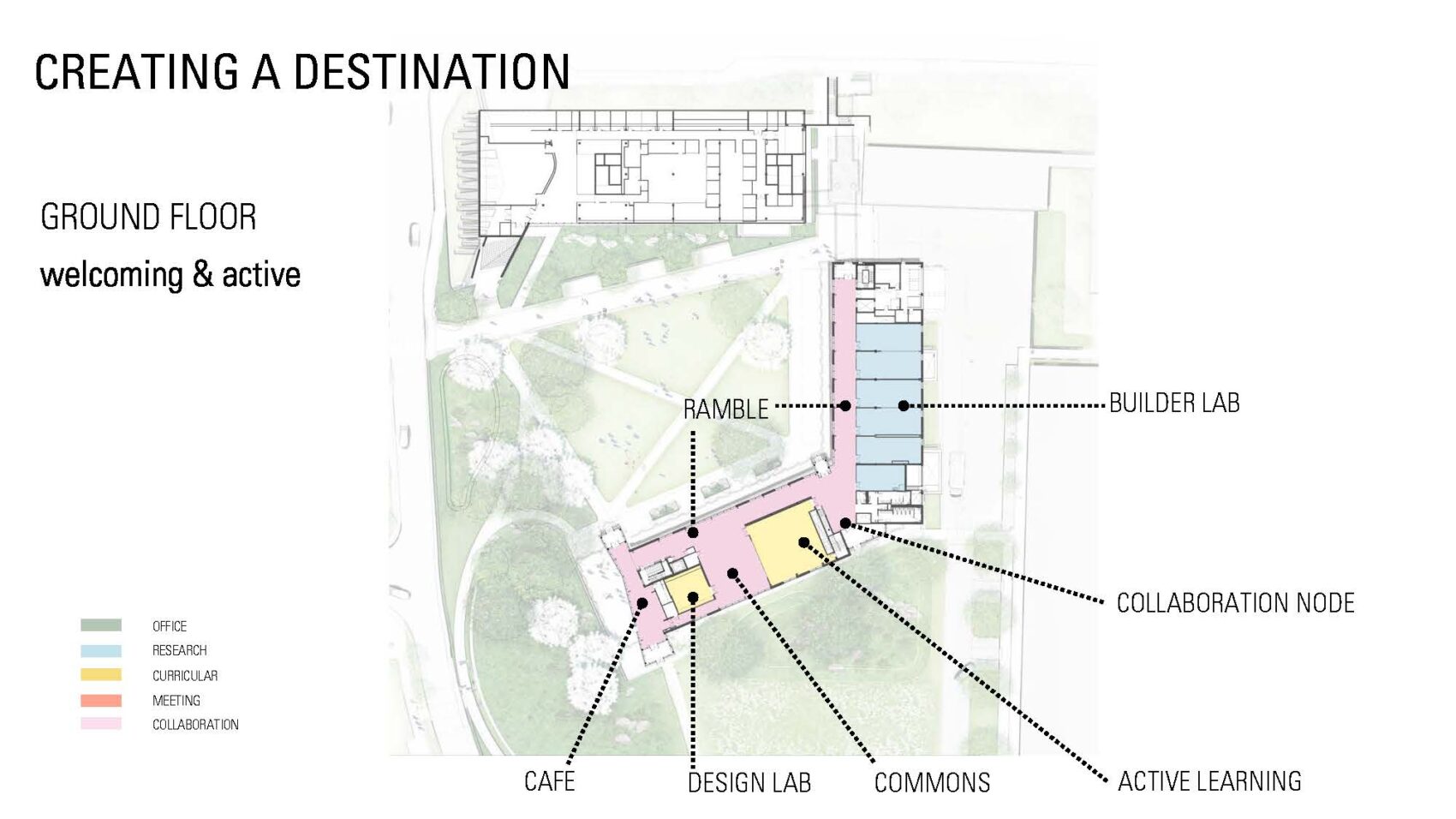
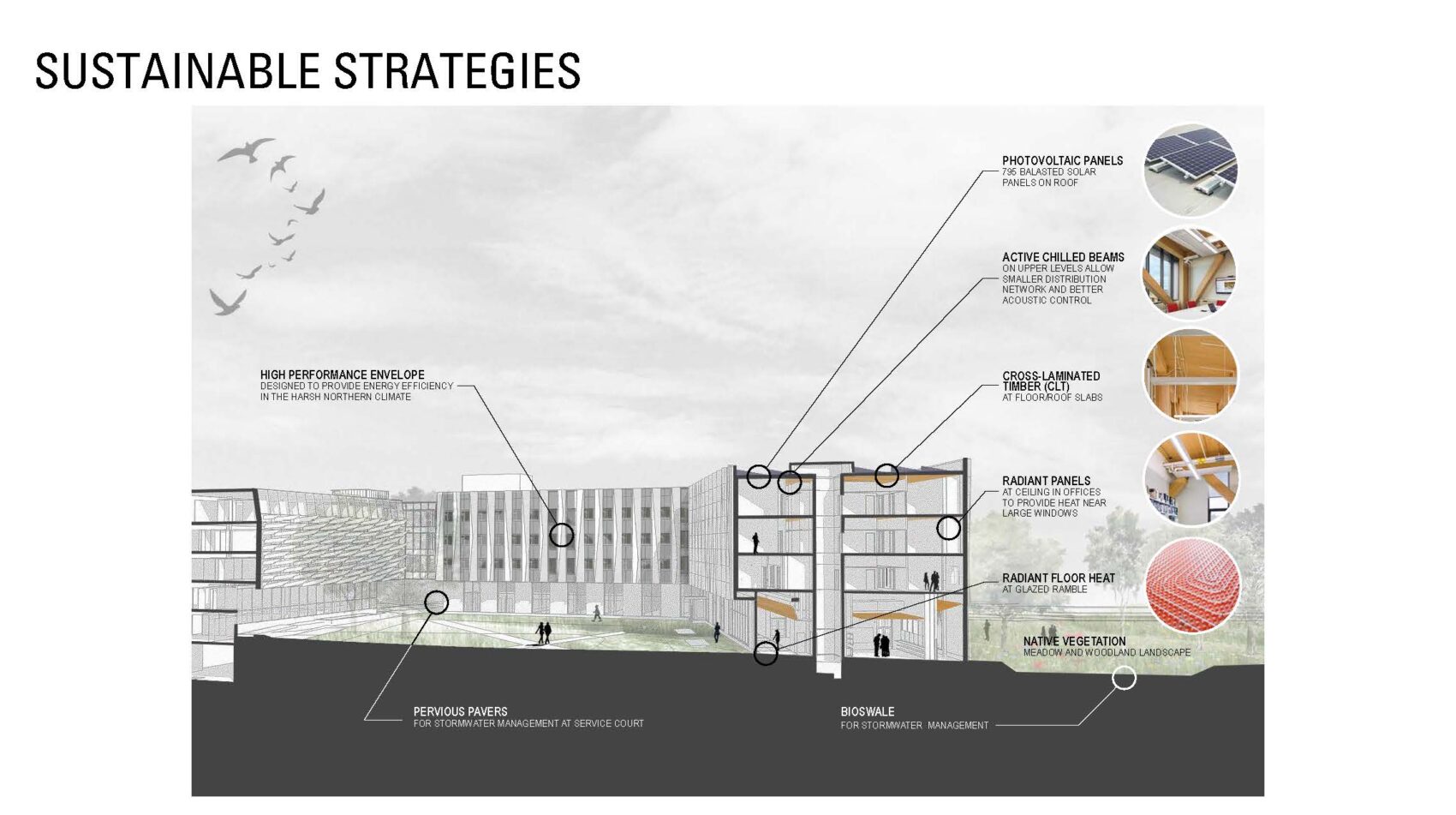
Related Stories
University Buildings | Nov 18, 2016
Stephen F. Austin State University’s new STEM building breaks ground
Kirksey Architecture designed the building that ‘will serve as a landmark for SFA.’
University Buildings | Oct 25, 2016
Columbia University dedicates its new campus with great fanfare
Transparency to the surrounding community played a big role in the campus’s design.
School Construction | Oct 23, 2016
As construction rebounds, education sector spending flattens
Post-recession slump suggests a settling in at a “normal” level similar to the mid aughts.
University Buildings | Oct 19, 2016
UC Merced to nearly double its size by 2020
Its growth strategy includes adding 1.2 million sf of space for teaching, housing, and research.
University Buildings | Oct 12, 2016
The new Hancher Auditorium opens on University of Iowa campus
The building replaces the previous Hancher, which was irreparably damaged in the 2008 flood.
University Buildings | Oct 11, 2016
The University of Iowa gets a new Visual Arts Building
The building was a collaborative effort between BNIM and Steven Holl Architects and marks the sixth facility the two firms have worked together on
Sponsored | University Buildings | Oct 3, 2016
Enhancing university life: The smart shower bead
Residential spaces that need to meet high traffic demands while accommodating an ever-changing populace creates a unique set of obstacles for any educational institution’s housing.
Sponsored | University Buildings | Sep 29, 2016
UWM’s Kenwood Interdisciplinary Research Complex: The most distinctive building on campus
The largest building on campus, it was designed by Flad Architects to comply with LEED Gold Certification standards and to meet a wide range of current and future academic needs.
University Buildings | Sep 12, 2016
The University of Chicago’s newest residence halls are designed to be more like home
Abundant common spaces give students more chances to interact.
University Buildings | Aug 17, 2016
Supporting communities of motivated learners: reflections on SCUP-51
The two themes that were consistently woven into different topics were institutional transformation and connection with students.


